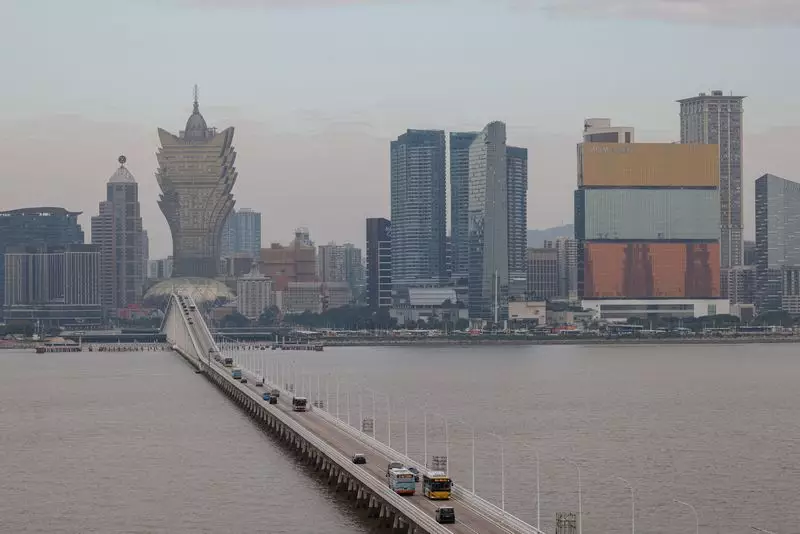In 2024, Macau’s gaming revenues showcased a significant increase, jumping by nearly 24% compared to the previous year. This remarkable resurgence, with total revenues reaching 226.8 billion patacas (approximately $28.35 billion), highlights the region’s resilience in bouncing back from the pandemic’s fallout. Nonetheless, despite this boost, the revenue figures still fall short of the pre-pandemic highs of 292.5 billion patacas recorded in 2019. This trend raises important questions regarding the sustainability of Macau’s economy, which remains predominantly tethered to its gambling industry.
The government’s projections had initially estimated revenues at around 216 billion patacas, suggesting a positive economic sentiment. However, a decline in revenue of 2% in December signals underlying vulnerabilities. This drop coincided with increased security during a notable visit from Chinese President Xi Jinping, which underscores how external factors can weigh heavily on Macau’s economic landscape. December’s downturn was notably the only month in 2024 with a year-on-year fall, drawing attention to the need for a more robust economic foundation independent of the gaming sector.
Diversification as a Path Forward
During President Xi’s visit, he stressed the importance of diversifying Macau’s economic portfolio. The call for “courage” in pursuing new industries reflects a growing acknowledgment that relying heavily on casinos is no longer viable in a rapidly changing economic environment. Xi encouraged Macau to align more closely with mainland China’s evolving environmental and developmental strategies, particularly through enhanced integration within the Greater Bay Area—a region promoting economic synergy among cities like Hong Kong, Guangzhou, and Shenzhen.
Macau’s relationship with Portuguese-speaking countries was also highlighted as an area ripe for collaboration. By strengthening these ties, Macau could leverage its unique position and cultural connections to foster trade and investment opportunities that go beyond gaming. This diversification strategy is crucial as the gaming sector continues to face pressures from both domestic policies aimed at curbing corruption within the VIP gambler demographic and the broader impacts of pandemic-era travel disruptions.
Embracing New Economic Models
The challenge for Macau lies in balancing its historical identity as a gaming hub while simultaneously venturing into new industries. Potential sectors for diversification may include tourism beyond gambling, technology, finance, and cultural exchanges. By fostering an environment conducive to innovative enterprise and investment, Macau could enhance both its local economy and its international competitiveness.
Moreover, participation in initiatives like China’s Belt and Road Initiative can reshape Macau’s economic narrative. This multifaceted approach not only seeks to stimulate growth in various sectors but also integrates Macau into broader international trade networks, positioning it as a potential logistics and financial center.
While Macau’s gaming revenues demonstrate a period of recovery, the region stands at a crossroads. By confronting its heavy reliance on the gambling sector and actively pursuing economic diversification, Macau can build a more resilient future that captures the dynamism of the modern economy while preserving its unique heritage. The journey may be challenging, but the potential rewards are significant.

